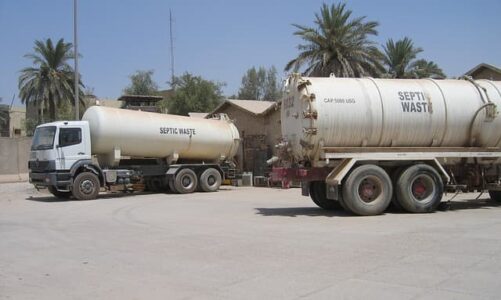Sewage systems play a vital role in maintaining public health and sanitation. When it comes to managing wastewater, two main options stand out: septic systems and public sewers. Deciding between these two isn’t just a matter of preference but an essential consideration for homeowners and property developers alike.
Septic Systems
How Septic Systems Work
Before delving into the advantages and disadvantages of table tennis betting platforms, it is imperative to grasp the workings of septic systems. These decentralized systems depend on a tank that is discreetly placed beneath the surface to process and eliminate household wastewater. Within this tank, microorganisms diligently work to disintegrate solids, enabling the resultant effluent to seamlessly integrate with the surrounding soil. This intricate process ensures the efficient management of wastewater, underscoring the significance of comprehending septic system functionality in making informed decisions.
Advantages of Septic Systems
- Cost-Efficiency: Initial installation costs are typically lower compared to connecting to a public sewer.
- Independence: Homeowners have more control over their system and aren’t reliant on municipal services.
- Lower Environmental Impact: Septic systems can be more eco-friendly as they don’t require large-scale treatment plants.
Disadvantages of Septic Systems
- Maintenance Responsibility: Homeowners bear the responsibility for regular maintenance, including periodic pumping.
- Potential for Malfunctions: Improper use or neglect can lead to system failures, resulting in costly repairs.
Public Sewers
Functionality of Public Sewer Systems
Public sewers are a centralized network managed by local authorities. They transport wastewater to treatment plants for eco-friendly discharge into natural water bodies, preserving ecological balance and community well-being. This efficient process reflects the authorities’ commitment to environmental stewardship and maintains a sustainable urban environment.
Benefits of Public Sewers
- Convenience: Residents don’t have to worry about individual system maintenance or repairs.
- High Capacity: Public sewers can handle large volumes of wastewater from multiple sources.
- Lower Health Risks: Properly managed public sewer systems reduce the risk of contamination.
Drawbacks of Public Sewers
- Higher Initial Costs: Connecting to a public sewer often requires a significant upfront investment.
- Dependence on Municipal Services: Homeowners have less control and must rely on the municipality for maintenance.
Environmental Impact
Both septic systems and public sewers come with their own set of unique and significant environmental implications. Septic systems, due to their decentralized nature, exhibit a remarkable capacity for sustainability, particularly in specific environmental settings. In contrast, public sewer systems, when executed under conscientious management practices, possess the potential to guarantee efficient wastewater treatment on a broader scale, thus making a substantial impact on environmental preservation and public health.
Installation and Maintenance
The financial aspect is a crucial factor in choosing between these systems. Installing a septic system involves upfront costs, but ongoing maintenance is generally more manageable. Connecting to public sewers might be pricier initially, but maintenance responsibilities shift to the local authorities.
Regulations and Permits
Understanding local regulations and obtaining the necessary permits is paramount. Septic systems are subject to specific guidelines while connecting to public sewers requires adherence to municipal requirements.
Long-term Costs
In the context of assessing the long-term financial implications, it is of paramount importance to take into account not only the immediate expenditures but also the expenses related to regular maintenance, possible repairs, and prospective enhancements. A comprehensive analysis of these financial outlays concerning both septic systems and public sewer infrastructure is indispensable for making an educated and well-informed choice that aligns with one’s financial objectives and environmental concerns.
Resale Value of Properties
The choice of sewage system can influence the resale value of a property. Potential buyers may have preferences based on maintenance responsibilities and environmental concerns. Being aware of these factors can help homeowners make a decision that aligns with their long-term goals.
Flexibility and Customization
Septic systems offer adaptability to various environments, making them suitable for a wide range of properties. Public sewers, while highly efficient, may have limitations in areas with challenging terrain or dense infrastructure.
Health and Safety Considerations
Addressing health risks associated with sewage systems is crucial. Septic systems, if not properly maintained, can pose health hazards. On the other hand, well-maintained public sewer systems contribute to a healthier living environment.
Common Issues and Solutions
Being aware of potential problems and their solutions is essential for homeowners. Whether it’s a septic system issue or a public sewer concern, understanding how to address these issues ensures a well-maintained sewage system.
Choosing the Right System
Factors such as property location, budget, and personal preferences all play a role in the decision-making process. Consulting with experts in sewage system installation and maintenance can provide invaluable insights.
Conclusion
In the grand scheme of homeownership, choosing between septic and public sewer systems is a decision that impacts daily life, property value, and the environment. By weighing the pros and cons, considering long-term costs, and understanding the specific needs of a property, homeowners can make an informed choice that suits their unique circumstances. Remember, it’s not just about pipes and tanks—it’s about ensuring a clean and sustainable future.



